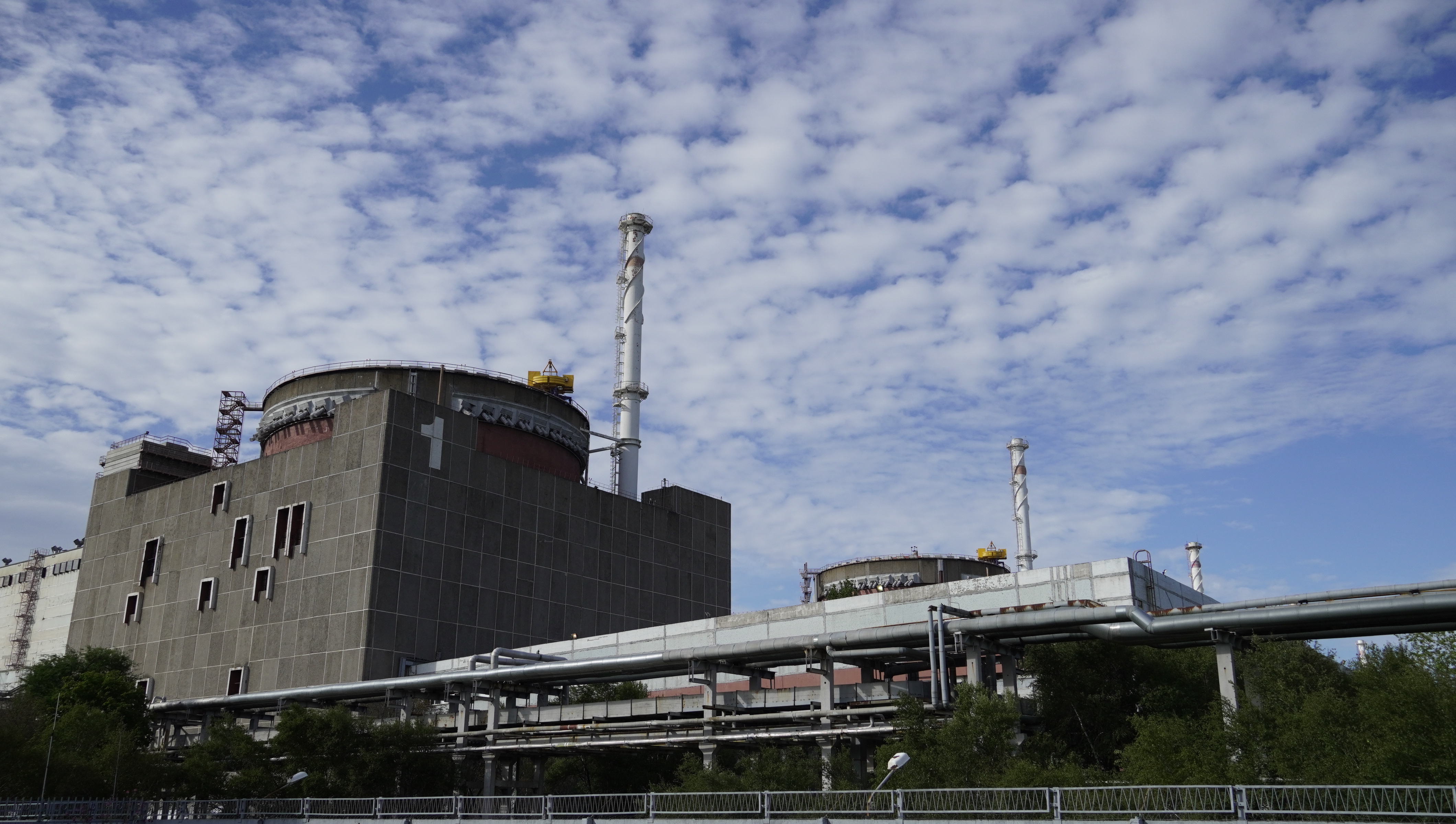Europe's largest power plant at risk of nuclear accident, Russian officials say


A free daily email with the biggest news stories of the day – and the best features from TheWeek.com
You are now subscribed
Your newsletter sign-up was successful
The head of Rosatom, Russia's state-run atomic energy agency, reportedly said Monday that continued shelling near Europe's largest power plant had raised the probability of a nuclear accident, according to Reuters.
The Zaporizhzhia nuclear power plant, a Ukrainian facility that has been occupied by invading Russian forces since March, has reportedly been subjected to renewed shelling in recent days. As a result, Rosatom CEO Alexei Likhachev was quoted by Russian news agency Interfax as saying that Zaporizhzhia was "at risk of a nuclear accident," per Reuters. Likhachev added that he had been in negotiations with the International Atomic Energy Agency.
Rosatom has controlled Zaporizhzhia since Russian President Vladimir Putin formally seized the plant in October, and all Ukrainian staff was reportedly removed.
The Week
Escape your echo chamber. Get the facts behind the news, plus analysis from multiple perspectives.

Sign up for The Week's Free Newsletters
From our morning news briefing to a weekly Good News Newsletter, get the best of The Week delivered directly to your inbox.
From our morning news briefing to a weekly Good News Newsletter, get the best of The Week delivered directly to your inbox.
Both Russia and Ukraine have accused each other of the shelling, and the IAEA also weighed in on the possibility of a nuclear disaster at Zaporizhzhia. Rafael Grossi, the head of the commission, said that whoever was attacking the plant was "playing with fire," CNN reported. "Whoever is behind this, it must stop immediately," Grossi added.
While the shelling has reportedly not directly targeted Zaporizhzhia itself, Grossi said in a separate statement, "Even though there was no direct impact on key nuclear safety and security systems at the plant, the shelling came dangerously close to them."
The IAEA has called for a security zone to be placed around the plant, though Likhachev said any such zone would need the approval of the United States.
A free daily email with the biggest news stories of the day – and the best features from TheWeek.com
Justin Klawans has worked as a staff writer at The Week since 2022. He began his career covering local news before joining Newsweek as a breaking news reporter, where he wrote about politics, national and global affairs, business, crime, sports, film, television and other news. Justin has also freelanced for outlets including Collider and United Press International.
-
 What to know before filing your own taxes for the first time
What to know before filing your own taxes for the first timethe explainer Tackle this financial milestone with confidence
-
 The biggest box office flops of the 21st century
The biggest box office flops of the 21st centuryin depth Unnecessary remakes and turgid, expensive CGI-fests highlight this list of these most notorious box-office losers
-
 The 10 most infamous abductions in modern history
The 10 most infamous abductions in modern historyin depth The taking of Savannah Guthrie’s mother, Nancy, is the latest in a long string of high-profile kidnappings
-
 The mission to demine Ukraine
The mission to demine UkraineThe Explainer An estimated quarter of the nation – an area the size of England – is contaminated with landmines and unexploded shells from the war
-
 The secret lives of Russian saboteurs
The secret lives of Russian saboteursUnder The Radar Moscow is recruiting criminal agents to sow chaos and fear among its enemies
-
 Is the 'coalition of the willing' going to work?
Is the 'coalition of the willing' going to work?Today's Big Question PM's proposal for UK/French-led peacekeeping force in Ukraine provokes 'hostility' in Moscow and 'derision' in Washington
-
 Ukraine: where do Trump's loyalties really lie?
Ukraine: where do Trump's loyalties really lie?Today's Big Question 'Extraordinary pivot' by US president – driven by personal, ideological and strategic factors – has 'upended decades of hawkish foreign policy toward Russia'
-
 What will Trump-Putin Ukraine peace deal look like?
What will Trump-Putin Ukraine peace deal look like?Today's Big Question US president 'blindsides' European and UK leaders, indicating Ukraine must concede seized territory and forget about Nato membership
-
 Ukraine's disappearing army
Ukraine's disappearing armyUnder the Radar Every day unwilling conscripts and disillusioned veterans are fleeing the front
-
 Cuba's mercenaries fighting against Ukraine
Cuba's mercenaries fighting against UkraineThe Explainer Young men lured by high salaries and Russian citizenship to enlist for a year are now trapped on front lines of war indefinitely
-
 Ukraine-Russia: are both sides readying for nuclear war?
Ukraine-Russia: are both sides readying for nuclear war?Today's Big Question Putin changes doctrine to lower threshold for atomic weapons after Ukraine strikes with Western missiles
